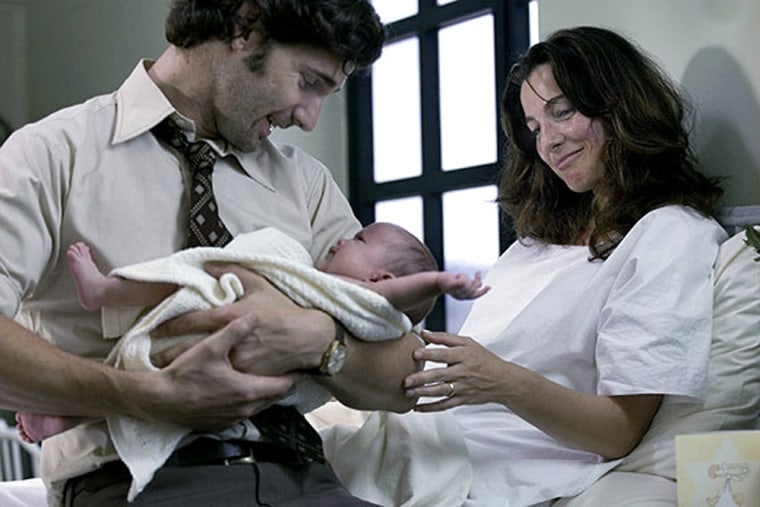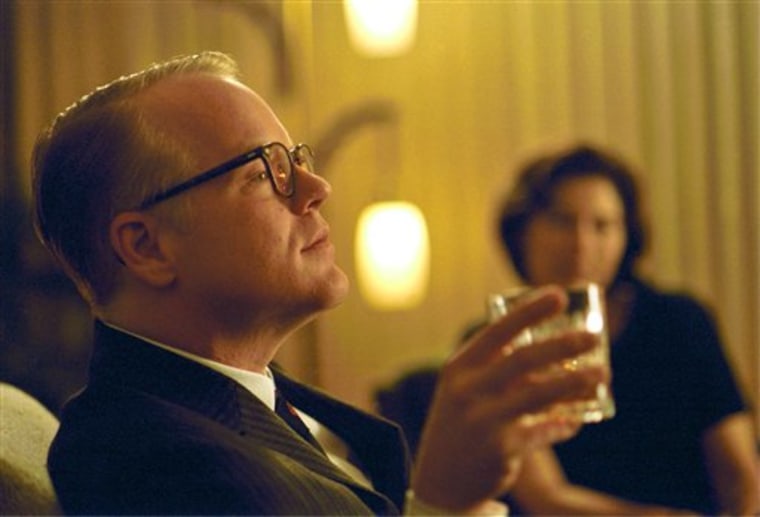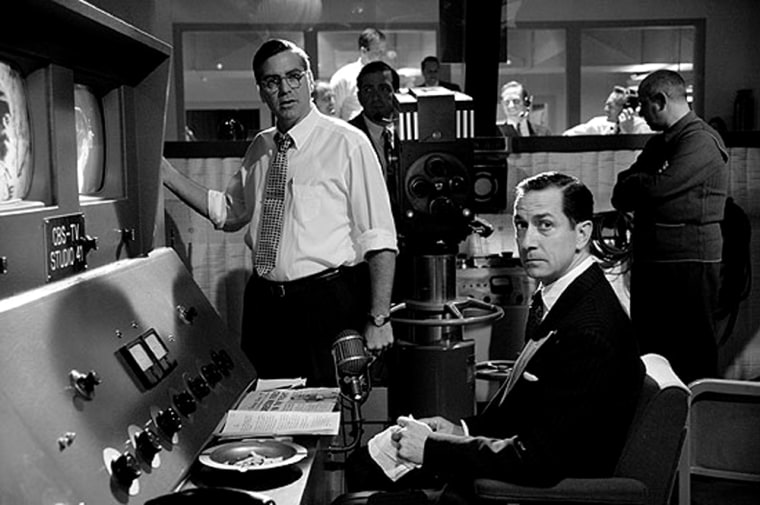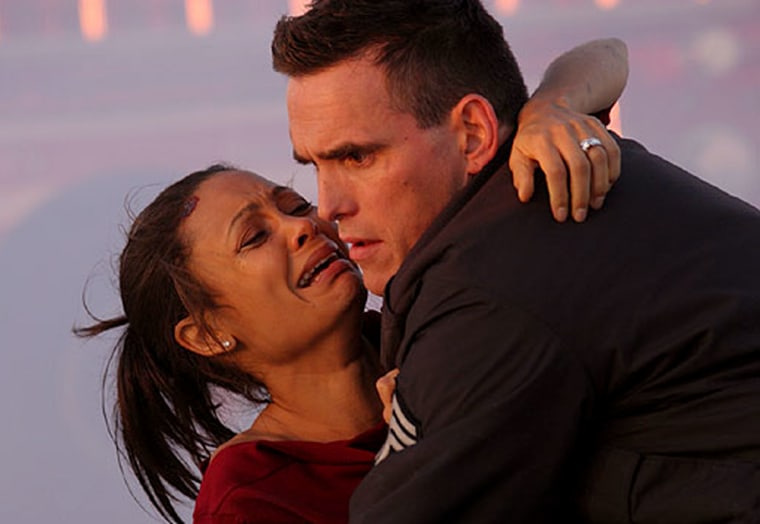OK, here are the best picture nominees in the order I would rank them:
“Munich” “Brokeback Mountain” “Capote” “Good Night, and Good Luck” “Crash”
The top three are all great movies. “Good Night, and Good Luck” is a good movie but so enclosed it doesn’t resonate. “Crash” stinks. There are plenty of other movies that could’ve taken that fifth slot: “The Squid and the Whale” or “Syriana” or “The Constant Gardener” or the underrated “Jarhead” or “Kiss Kiss, Bang Bang” or “King Kong” or “Wedding Crashers” or, hell, let’s leave it blank. Why not? Better to say nothing and be thought a fool.
The meaning of SAG
But which movie will win? If history means anything: “Brokeback.”
This year “Brokeback” won the Directors Guild Award (DGA), the Producers Guild Award (PGA), and the Golden Globe. Since 1989, when the PGA came into existence, nine pictures have won all of these awards and eight of the nine — “Dances with Wolves,” “Schindler’s List,” “Forrest Gump,” “The English Patient,” “Titanic,” “American Beauty,” “Chicago” and “Lord of the Rings: The Return of the King” — have gone on to win the Academy Award for best picture. The one that didn’t? “Saving Private Ryan,” in what is still a head-scratcher. Apparently the Weinsteins lobbied hard for “Shakespeare in Love,” and as anyone who has ever looked at our laws knows, lobbying works. Ads work. People are dumb.
Exhibit A: Word from Hollywood is that “Crash,” of all films, is making an 11th hour run at the title. According to L.A. Weekly’s Nikki Finke, older Academy members are shying from viewing “Brokeback” for the usual homophobic reasons. But then she writes this:
That “Brokeback” isn’t the Oscar favorite may have been foreshadowed at the SAG awards, when “Crash” topped it for best picture and Philip Seymour Hoffman won over Heath Ledger.
First, “Crash” didn’t top anything for best picture. There is no best picture at SAG. What “Crash” won was “Outstanding performance by a cast in a motion picture.” Second, winning the cast award at SAG is not exactly an accurate indicator of what will win the Academy Award for best picture. SAG has given the cast award nine times, and only four of those pictures have gone on to win the Academy’s best picture. Last year, for example, “Sideways” won the cast award.
In other words, if “Brokeback” doesn’t win it’s either a triumph for advertising or homophobia. Either way, the Academy looks bad.
Now let’s take a look at each individual picture.
Munich

Last April I wrote an article lamenting the fact that recent political thrillers, unlike their ‘70s counterparts, were basically star-driven vehicles (Julia Roberts, Clint Eastwood, Will Smith) that didn’t take their politics (environmentalism, political assassination, civil liberties) very seriously.
What a difference 10 months make. First we got “Syriana,” which is wholly thrilling and wholly political, right down to its “Committee for the Liberation of Iran,” but which hardly garnered a peep of protest from the powers-that-be. Perhaps they figured it was too opaque. It wasn’t until the final act that you sensed which characters to root for, and that’s just too much work for general audiences.
Besides, all political guns were aimed squarely at that other political thriller, Steven Spielberg’s “Munich,” which is odd in one sense, since “Munich’s” final message isn’t as political — or shouldn’t be as political — as “Syriana’s.” Audiences become more certain watching “Syriana” (certain that the oil companies are running the world), while audiences become less certain watching “Munich” (less certain that an eye-for-an-eye is a clean and effective tactic). It says a great deal about modern politics that, in our increasingly fundamentalist world, “uncertainty” is considered a political message worth attacking.
The attacks worked: “Munich” hasn’t done well at the box office and isn’t considered a serious contender for best picture. What a shame. I wrote an in-depth defense of “Munich” in January and received nice letters from hawks and doves alike on the bum rap the picture received. Even a retired U.S. general wrote me about the issues raised and his intention to see the film. On the other hand, I received a screed about terrorism and appeasement in which the writer condemned “individuals such as Spielberg and yourself” for blah blah blah. The writer meant it as an attack but by conflating me with Steven Spielberg he actually gave me the greatest compliment of my career.
Brokeback and Capote

Speaking of: If this directing thing ever stops working for Spielberg (wait for it...wait for it... keep waiting...), he would make a fine movie critic. His comments during the recent Newsweek interview with all of the nominated directors are simple and to-the-point:
You know, there’s a real similarity for me in the tone of “Brokeback Mountain” and “Capote”... Both of your films cast a spell on the audience because you don’t rush your scenes. You’re not running to take us anywhere. You’re walking, and you’re appreciating every detail. It’s such a beautiful rhythm.
In both films, too, the landscape becomes a character. The wilderness is metaphorically tamed in “Brokeback” — from jagged mountains in the beginning to the final shot, through Ennis’ trailer window, of uniform grass blowing in the breeze. I’ve already written extensively on “Brokeback” and have little else to add other than this thought: I’ve never known such an emotionally devastating movie to be the source of so many mainstream jokes. We’ll be embarrassed by this someday.
Meanwhile, director Bennet Miller begins “Capote” the way Capote began “In Cold Blood”: by invoking “the high wheat plains of western Kansas.” Miller’s silent, distant shots of flat, flat land is both beautiful and unnerving. People disappear in all that space. It’s what happens to the Clutter family at the hands of Richard Hickock and Perry Smith, and it’s what happens to Truman Capote during the course of this story.
Anyone who has ever read “In Cold Blood,” and who knows a thing or two about Truman Capote, has always wondered how such a character got everyone in Kansas to open up to him. “Capote” gives an answer: He charms; he seduces; he seems to empathize. Unlike Ennis in “Brokeback” he doesn’t pretend to be anyone other than who he is, but he always manages to find a common denominator between himself and a possible source.
To a high school girl with information, and with a friend about whom people are assuming things, he talks about how people have assumed things about him all his life — “because of the way I am,” he says, “the way I talk. And they’re always wrong.” To Alvin Dewey, the man in charge of the investigation, whose friend Herbert Clutter was killed, Truman talks about comforting his step-father after his mother’s death. To Perry Smith, the killer, who was abandoned as a child, Truman talks about being abandoned as a child.
With every seduction comes betrayal. Truman’s loyalty lies with the story; everything else is expendable. To get the story from Perry Smith before he’s executed, he hires lawyers to appeal their case — which betrays Alvin Dewey. But to give the story the ending it needs, he betrays Perry by abandoning him to his fate.
If there’s fault in this it’s that other characters — Truman’s friends — condemn him too much for his betrayals. Harper Lee is the voice of moral authority in the film but by the end she comes off as a prig. “I couldn’t have done anything to save them,” he says, genuinely distraught after the execution. “Maybe not, Truman,” she responds. “But the truth is you didn’t want to.”
The truth is he did and didn’t want to. Truman Capote the man may have loved Perry Smith, but Truman Capote the writer had to remain loyal to the story. In the end Truman had to betray himself for “In Cold Blood,” and it undid him.
Good Night, and Good Luck
If “Munich” raises uncertainty, “Good Night, and Good Luck” squashes it. Its point of view is as black and white as its cinematography; its wisdom is as contained as its claustrophobia-inducing sets. I don’t mean to imply that the film needed more “balance” — that awful, besmirched word.

Several years ago in The New Yorker, biologist Richard Dawkins said, “I think it's important to realize that when two opposite points of view are expressed with equal intensity, the truth does not necessarily lie exactly halfway between them. It is possible for one side to be simply wrong.”
I agree with this — I quote it weekly — but I learned almost nothing watching “Good Night, and Good Luck.” I was in the choir and admired George Clooney’s sermon, but none of it was exactly news.
So what was it? A good reminder that in times of paranoia, bullies prosper.
Crash

Now this thing.
I want to like “Crash.” It’s a film about how race and class blend together — but mostly don’t blend together — in modern Los Angeles. That’s a great subject for a serious film. And while “Crash” sees itself as a very serious film, it’s not a good film because it’s false from the beginning.
What do we talk about when we talk about race? We don’t talk about race. I would argue that this is the big problem with race in America. Our tendency to ignore it. Our tendency to pretend otherwise. Our tendency, in Paul Laurence Dunbar’s words, to “wear the mask that grins and lies.”
What is the big problem with race in the Los Angeles of “Crash”? That everyone enunciates every racial thought they have. So the Asian woman complains that “Mexicans” don’t know how to drive and the “Mexican” mocks the Asian woman’s pronunciation (“blake” for “break”), and the white gun store owner calls the Persian man “Osama” and blames him for 9/11 and the white cop mocks the black woman’s name (“Shaniqua. Big f---ing surprise”) and the black cop calls his girlfriend “Mexican,” as the Asian woman did, even though — she informs him — her mother is from Puerto Rico and her father is from El Salvador, to which the black cop makes it up to her by asking her why all of her people park their cars on their lawns.
“Crash” is saying “How horrible that we're all this way” when most of us are not only not this way but the exact opposite of this way. We may think these thoughts but we rarely enunciate them. Sure, racism still exists, but at its most potent it's usually silent. It's opaque. It makes you wonder “Is this happening because of race?” You suspect but you have no evidence. “Crash” not only gives us evidence it manipulates the evidence.
“Crash” has another big problem. It assumes that by showing us the two extremes of a single character it’s giving us a full character. Don Cheadle’s character dismisses his mother and then cares for her; Matt Dillon’s character humiliates a black woman and then risks his life to save her; Ryan Phillippe’s character goes out of his way to rescue an armed black man and then shoots an unarmed black man because of a racial assumption. But two extremes are not a full character. They’re just extremes. “Crash” raises important issues but in the end it gives us no clarity; it just gives us more noise.
Sum up
All in all, though, 2005 was a good year for movies, and — “Crash” aside — it’s a strong line-up of best picture candidates.
Since “Munich” has no shot, I think I’ll be rooting for “Brokeback Mountain” on March 5. I don’t want advertising to win. I don’t want homophobia to win. I don’t want this to be another year, like 1952 (“The Greatest Show on Earth” over “High Noon”), 1968 (“Oliver!” over the unnominated “2001”) and 1989 (“Driving Miss Daisy” over the unnominated “Do the Right Thing”), when the Academy ignored the zeitgeist and got it completely wrong.
Erik Lundegaard wonders why you haven’t gotten off your duff to see “Munich” yet. He can be reached at: